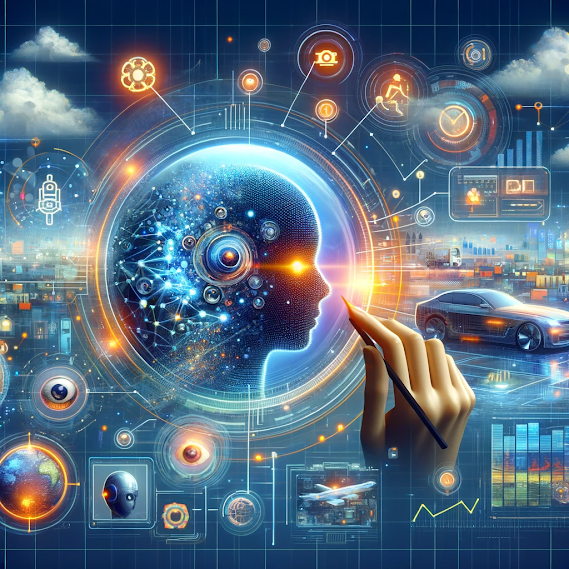🌐AI Revolution in the Legal Sphere: Charting New Frontiers
In an era where technology reshapes every facet of our lives, the legal industry stands on the brink of a monumental transformation. The United Kingdom's Judicial Office has recently taken a leap into the future by approving the use of ChatGPT to aid judges in their legal rulings. This pioneering decision marks a significant milestone in the journey of generative artificial intelligence (AI), extending its reach beyond conventional sectors such as AI in HR and supply chain management to the more solemn halls of justice.
The integration of AI tools like ChatGPT into the legal domain is not just an experiment in efficiency; it is a bold statement on the evolving relationship between technology and law. Tasks that once consumed hours of human labor, such as document summarization and the management of administrative duties, are now being streamlined through AI. This shift not only promises to enhance the effectiveness of legal practitioners but also to redefine the paradigms of legal research and judgment.
However, the road to this AI-driven future is paved with caution. The legal sphere, with its intricate complexities and nuances, poses unique challenges for AI implementation. There is a tangible risk associated with the potential generation of fictitious cases or documents, a scenario that underscores the importance of accuracy and integrity in legal proceedings. The enthusiasm for AI's capabilities is therefore tempered by a vigilant recognition of its limitations.
Esteemed legal figures such as Sir Geoffrey Vos and Lord Justice Birss have been at the forefront of advocating for AI's potential within the judiciary. Lord Justice Birss's utilization of ChatGPT in court rulings is a testament to the growing confidence in AI's ability to contribute meaningfully to the legal process. Nonetheless, their endorsements come with a clear message: the adoption of AI in the legal system must be accompanied by rigorous scrutiny to guard against inaccuracies and misuse.
The capabilities of AI in understanding and interpreting legal concepts have been notably demonstrated by Stanford Law School's report on GPT-4. Achieving a score near the 90th percentile on the Uniform Bar Exam (UBE), GPT-4 has not only passed this rigorous test but has also outperformed the average score of human candidates. This remarkable achievement serves as a compelling proof of concept for AI's potential in legal reasoning and analysis.
Yet, the ascent of AI within the legal domain brings with it an array of ethical and operational challenges. Ensuring the accuracy of AI-generated content, mitigating bias in AI algorithms, and safeguarding cybersecurity are paramount concerns that must be addressed. The integration of AI into the legal system is not merely a question of technological feasibility but also of ethical responsibility and legal compliance.
As we navigate this transformative period, it is crucial to maintain a balanced perspective on AI's role in the legal industry. The promise of increased efficiency and analytical depth must be weighed against the imperatives of fairness, transparency, and justice. The journey toward a future where technology and law converge is fraught with both opportunities and obstacles.
The approval of ChatGPT for judicial assistance by the UK Judicial Office is a harbinger of the profound changes awaiting the legal industry. As AI technologies continue to evolve, their integration into legal practices will undoubtedly redefine the contours of legal work and judicial decision-making. However, this journey requires a careful and considered approach, ensuring that the embrace of innovation does not compromise the core values of justice and equity.
In conclusion, the AI revolution in the legal sphere represents a new frontier of possibility and challenge. As legal professionals and technologists collaborate to harness the potential of AI, the focus must remain on leveraging these advancements to enhance the delivery of justice. By fostering an environment of cautious optimism and vigilant oversight, we can ensure that the integration of AI into the legal system serves to empower rather than undermine the principles of law. Here's to a future where technology and legal practice advance hand in hand, towards a horizon of fair and efficient justice for all.

.png)
.jpeg)


Comments
Post a Comment